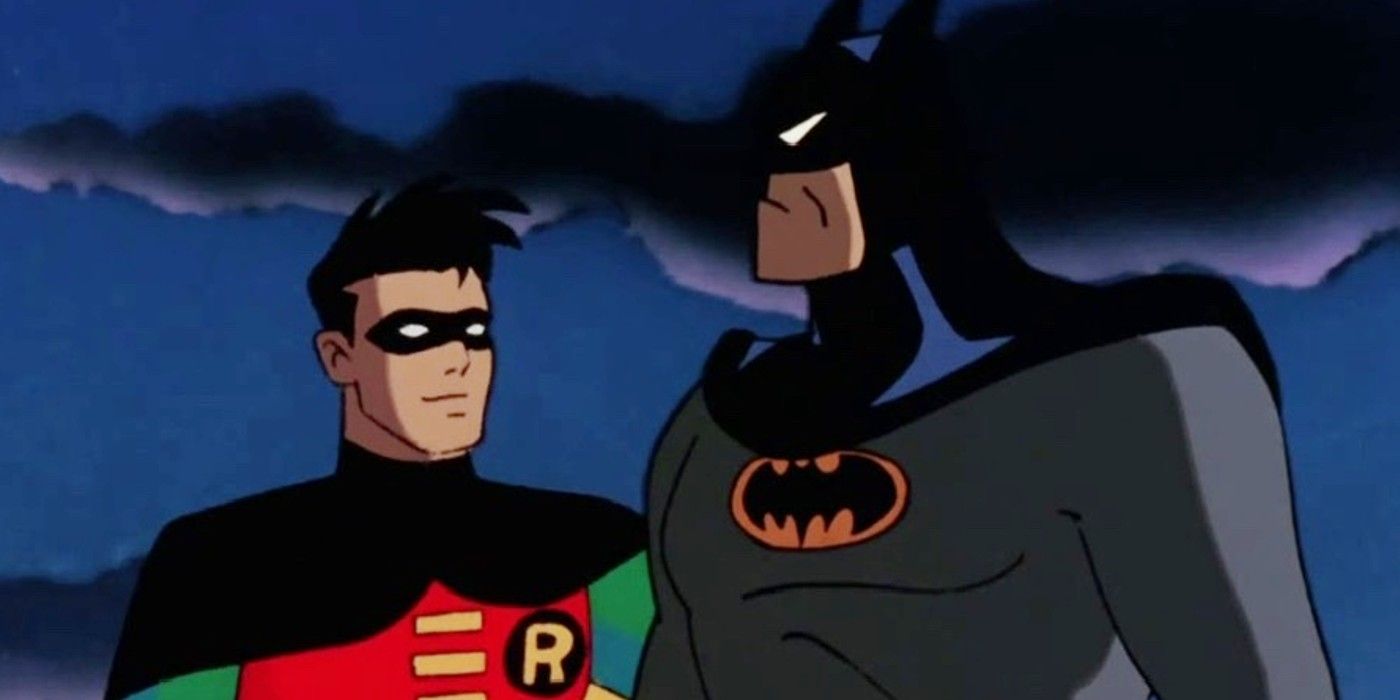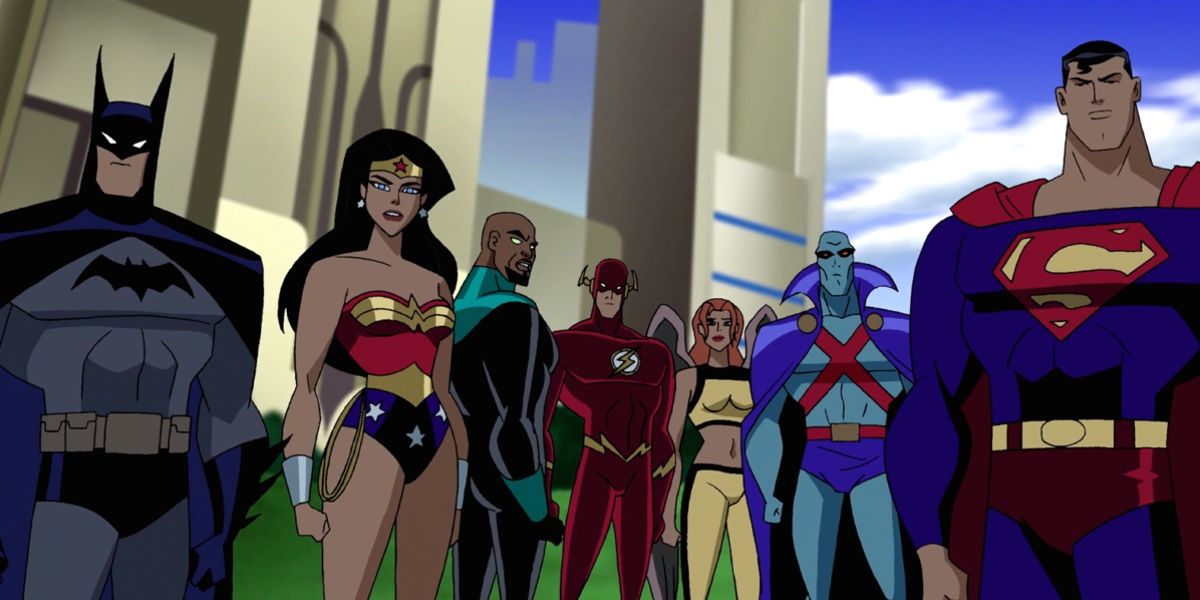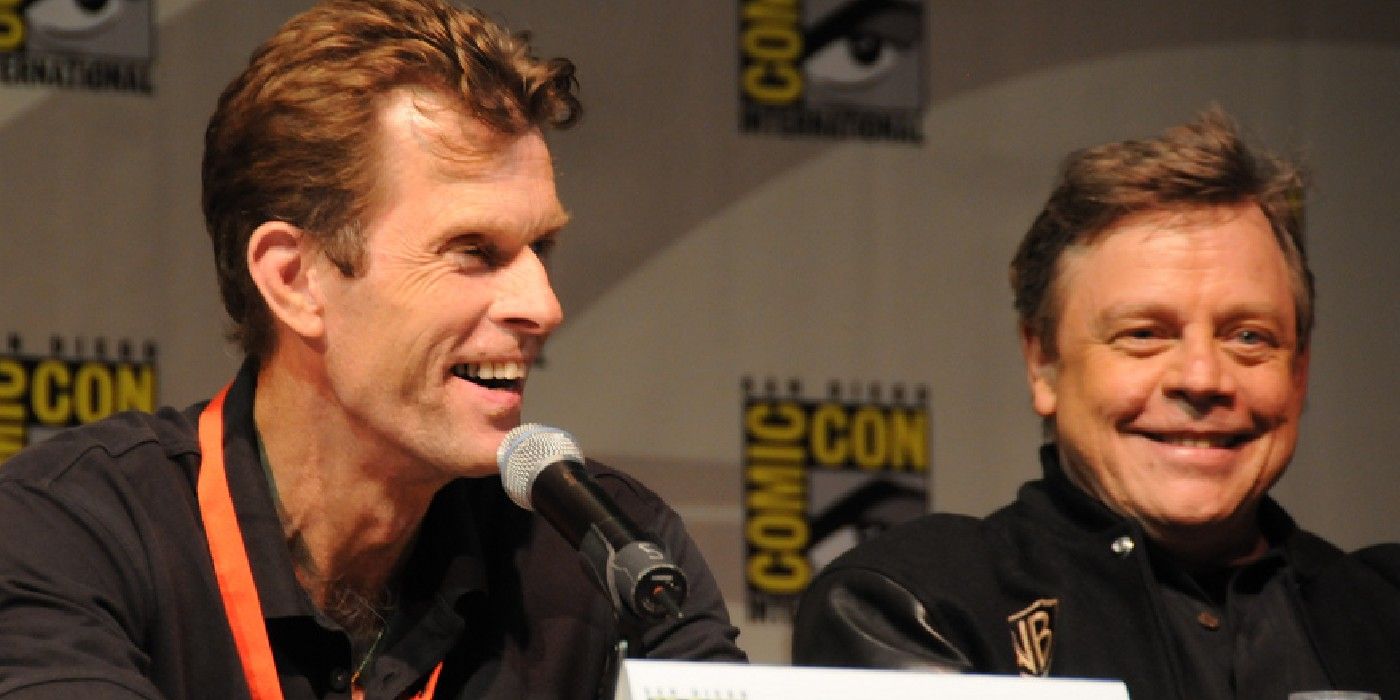Kevin Conroy is Batman. For the last 30 years, comic book fans have understood this declaration to be gospel, just like the sentiment that Batman: The Animated Series is both the greatest superhero cartoon of all time and one of the best TV shows ever made. Batman has received the lion's share of big-budget adaptations with A-list stars including Michael Keaton, Val Kilmer, Christian Bale, Ben Affleck and most recently Robert Pattinson. Yet it's Conroy's voice fans probably hear in their head, given how much of his voice acting career has been spent playing the Dark Knight.
Not since the late Adam West's 1960s Batman TV series had a comic book adaptation so fervently defined the character for an entire generation. Between its timeless (and heavily blimp-populated) "dark-deco" portrayal of Gotham City, introducing original characters like Harley Quinn and Renee Montoya or singlehandedly retconning Mr. Freeze's backstory overnight with "Heart of Ice" (which won the show a Daytime Emmy Award), the majority of The Animated Series' creative decisions have become core fixtures of DC's comic world. On top of that, the show spawned a theatrical tie-in, Batman: Mask of the Phantasm, whose storytelling quality outshone live-action Batman movies and kickstarted the entire DC Animated Universe: the gold standard of shared universes. Batman: The Animated Series was an undisputed trailblazer for superhero media -- and a large part of it rested on the shoulders (or voice) of Kevin Conroy.
Kevin Conroy's Batman is The Animated Series' crowning achievement. Fans have heard his voice in nearly everything from feature-length animated movies to minute-long shorts, big-budget games like the Batman: Arkham trilogy and Injustice titles to Six Flags rides, making Conroy the longest-running actor to play Batman outside of West. It's a voice that, no matter the script, routinely captures the essence of the Caped Crusader: Batman's humanity and his psychological duality.
Conroy was not the first actor to give Batman and Bruce Wayne separate voices. Both West and the possibly returning Keaton approached their roles from a similar angle, either exaggerating the delivery of Batman's dialogue or giving him a quiet whisper more natural-sounding than Bruce's socially awkward mannerisms. But the way Conroy deepened his voice didn't just make Batman feel distinct. It made the gritty, intimidating vigilante sound like a completely different person, in turn causing Bruce to feel like a mask Batman inhabited when not wearing the cowl. So much so that when viewers hear Conroy speaking as Bruce, the speech pattern just feels off.
Moreso, Conroy pulled from the best of West and Keaton's characterizations. As Bruce, he was charming, witty and philanthropic -- but never fully oblivious to outside events like West's affluent patriarch or, later on, Bale's carefree playboy. His superhero tools and vehicles mimicked Keaton's Batman iconography, but could perform far more impressive feats thanks to their animated form. Conroy offered a more well-rounded Batman/Bruce than fans were used to, one whose relationships with allies like Dick Grayson and villains like Two-Face were fleshed out farther across four seasons -- or even 22-minute episodic short stories -- than most films accomplished in two hours.
That development made for greater layers to the character. Being a Juilliard School graduate, Conroy was well-versed in theater and Shakespearean work and understood how to give Batman's stories a melodramatic edge. But Conroy could also make Batman seem light-hearted and funny to viewers. Or awkwardly romantic. Or a source of comfort to ordinary people and tragic supervillains alike. These were traits antithetical to the misguided belief that Batman's only personality trait is being a grim, angsty creature of the night.
More often than not, Batman: The Animated Series presented Batman as fallible, tragic or even physically vulnerable. A hero forever living in the shadow of the "waging a war on all criminals" promise he made after seeing his parents murdered. Episodes like Season 1, Episode 30, "Perchance to Dream" or Season 1, Episode 49, "I Am the Night" repeatedly addressed this side of Batman's psychology, recognizing that underneath all the near-superhuman will, he's still a human being with wants and self-doubts he must overcome no matter the risks, hence why the infamous "I am vengeance" scene remains so beloved. It's a declaration of pushing beyond fear and redirecting one's trauma toward a better cause, with Conroy perfectly conveying the pain and perseverance through line delivery alone.
Batman's duality was something he personally understood. In "Finding Batman," the autobiographical story Conroy wrote for DC Pride #1 (with artwork and lettering by J. Bone and Aditya Bidikar), the actor opened up on how being gay while working in New York during the AIDS crisis forced him to embrace dual identities. He adopted a public face for the world to find him socially acceptable and a private one to mask not only his sexuality, but also painful family trauma, the deaths of so many friends and his fears in a homophobic entertainment industry. Batman, as he was told during his audition, had a similar dichotomy: "A mask of confidence to the world, and a private one racked by conflict and wounds." Channeling those tragic experiences helped Conroy make Batman an extension of himself, contributing to the power of his performance in every episode.
At the heart of Conroy's Batman story was the pathos surrounding a life Bruce Wayne committed himself to. After all, the tragedy at the heart of Mask of the Phantasm's origin story is that young Bruce had a chance at happiness, but perceived it like an act of a self-betrayal. So much so that, in one of the film's most heartbreaking scenes, Bruce physically begs his parents' grave to let him out of his crime-fighting vow, as if he needs their ghosts to forgive him for wanting a normal life. It's only when that door is forcibly closed that he concedes to becoming Batman -- a moment framed less as triumphant and more like a second death of innocence.
It's this balance between tenacious hero and tragic outsider that made Batman such a presence in the DCAU as its scope expanded. Across Superman: The Animated Series, Justice League and Batman Beyond, he gained new allies, friends and even protégés to continue his mission, in turn becoming part of a larger superheroic cause. But with each incarnation, Conroy's Batman grew more cynical and belligerent until fans reached the elderly, cantankerous recluse of Beyond, as if the strain of being Batman gradually swallowed up Bruce. That his character actually aged alongside viewers only solidified Batman as the DCAU's Everyman -- a mere mortal fighting alongside aliens, demigods and metahumans who nevertheless regarded him as their peer. If Batman: The Animated Series proved that Conroy was the definitive Batman, then Justice League and Batman Beyond proved that he was a versatile Batman, too. He could appear in any superhero property, regardless of genre or demographic, and tonally blend right in.
Nowadays, hearing Conroy's voice almost feels like confirmation of a DC product's viability. Countless animated movies have either brought him back to play Batman solo or alongside his Justice League co-stars, cementing them as equally definitive voices for their DC characters. When Batman: Arkham Asylum's first teasers were unveiled, Conroy and Hamill's voice work semi-legitimized the value of a licensed video game that so many people were wary of... at least before the final game blew everybody's expectations away and created a franchise that's apparently come to an end.
While some fans were disappointed in Crisis on Infinite Earths' decision to make Conroy's live-action Bruce Wayne evil, that the Arrowverse even brought him onboard speaks to the actor's legacy. In a storyline paying tribute to so many classic DC adaptations, the CW recognized his entire voice acting catalogue as more than the equivalent of any live-action star who introduced older fans to DC characters through film and television. It might have been his first time playing a superhero in front of the camera, but no one had a better claim to that specific hero as Kevin Conroy did in a recording studio.
Between the latest direct-to-DVD films and Multiversus, Conroy has no intention on stopping his Batman career anytime soon. Fans would not have it any other way. Should Batman: Caped Crusader be picked up after being nixed by HBO Max, he ought to return for that project, because he still understands how Batman should act, think and talk on a fundamental level. Even after all this time, revisiting Batman: The Animated Series on Blu-Ray or HBO Max not only feels as compelling as it was thirty years ago, but reaffirms what DC fans have known about Conroy from the start. He is still vengeance, he is still the night, and he is still Batman.
Batman: The Animated Series is currently streaming on HBO Max.



